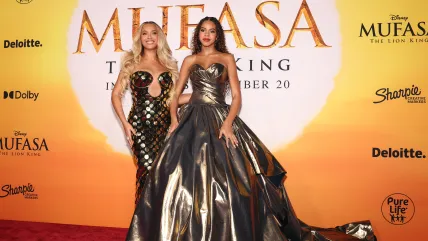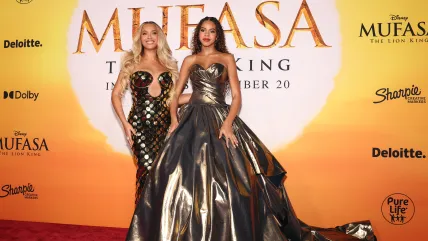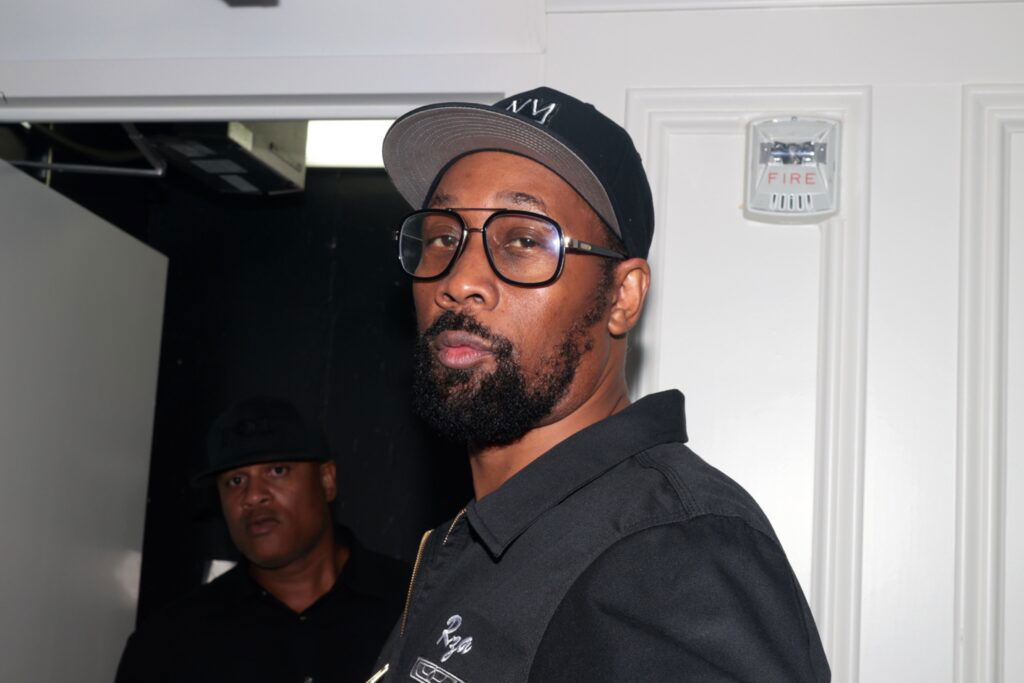For far too many Black girls, being scolded for acting or dressing “grown” is a rite of passage they never asked for. It’s a burden passed down through generations — a double standard rooted in society’s deeply ingrained stereotypes about how Black girls should look, behave, and present themselves. While some argue that labeling behavior or attire as “grown” is meant to protect young girls from being sexualized by society, the label itself often acts as a scarlet letter, unfairly burdening them with adult perceptions and expectations.
This week, Blue Ivy Carter became the latest target of such criticism following her appearance at the “Mufasa: The Lion King” premiere. On Monday, Beyoncé and Jay-Z’s 12-year-old daughter stepped onto the red carpet to celebrate her debut as a voice actress in a gilded Christian Siriano ballgown. But rather than focusing on her accomplishments or her glowing presence on the red carpet, some social media users used the moment as an opportunity to criticize her appearance and, by extension, her parents.
“Honestly, the way Blue Ivy, a 12-year-old, is over-sexualized by her parents needs to be studied because she [is] still a child and they’re dressing her like she’s 17-18 year old,” one critic wrote on X.
Unfortunately, this is nothing new. For years, Black girls like Blue Ivy have been unfairly policed, with many in society quick to scrutinize their style, bodies, and expressions through a distorted, often hypersexualized lens. These judgments don’t exist in a vacuum; they’re the product of adultification bias, a long history of stereotypes that portray Black girls as more mature, more adult-like, and, in turn, more responsible for how others perceive them.
Author Tiffany D. Jackson offers insight into how the term “grown” feeds into this harmful dynamic, explaining that it is “associated with the concept of being too adult-like for one’s age.” The problem is that this label does not protect — it punishes. By framing normal aspects of a Black girl’s growth or self-expression as inappropriate, she is effectively held accountable for the gaze and biases of others.
While critics called the gown “wildly inappropriate,” other users defended Blue Ivy, noting that its silhouette resembled a princess ballgown, a popular style amongst young girls.
“A lot of little girls wear this type/cut of Disney dress,” another user wrote. “You’re only sexualizing it because Blue Ivy is developing. She can’t help that. But the fact that you are focused on a [12-year-old’s] developing cleavage in a big dress makes YOU weird — not her parents.”
As users argue over whether it is appropriate for a preteen to wear a strapless gown, TikTok creator Mecca, known as @Meccavelli, explained how this conversation illuminates the reality of raising and styling tweens, a term used to describe children between the ages of 10 and 12, in 2024.
“It just seems like no one makes tween clothes anymore. From 12 to like 13, 14, [at] that age you’re not really a teenage, you’re a tween…You’re not going to wear the same things that you would at 9 [years old]…but you can’t wear the things that you could possibly wear at 15, 16,” she said, noting how other generations had retailers like “Limited Too” and “Justice” that specifically designed clothes for that age bracket.
Though social media may currently be hyperfocused on Blue Ivy’s sartorial choices, it is not the first time she’s fallen victim to social media’s judgment. From comments about her hair as a mere toddler to criticism about her dancing during the “Renaissance” world tour, Beyoncé’s eldest daughter was introduced to social media’s scrutiny at a young age.
“So, Blue Ivy read those nasty comments on the internet about her as a dancer on her mother’s Renaissance Tour. Now, y’all are cyberbullying that innocent child over a dress?! I feel for her bc y’all have been attacking her for no reason since she was in diapers,” one user wrote. “Leave her alone.”
“People have always been disgusting to Blue Ivy since she was a literal baby. But people have been using that lawsuit against her dad to be even more disgusting. Analyzing her body language, saying her parents “sexualize” her because of the dress she wore,” another tweeted, referencing the recent sexual assault allegations against Jay-Z.
Regardless of her celebrity status, the relentless attacks against Blue Ivy reflect how society places undue expectations and criticism on Black girls from an early age. When they are confident, they are called “grown.” When they are poised, they are deemed “too mature.” And when they simply exist, they are policed for their clothing, their bodies, and their every move.
Blue Ivy’s premiere appearance should have been a moment of joy and celebration. Instead, it became a microcosm of the double standard Black girls have faced for generations. The “grown” label is less a shield than a weapon; one that perpetuates harmful stereotypes and reinforces adultification bias.
If anything, this discourse serves as a stark reminder that Black girls deserve the same grace and freedom as anyone else. Blue Ivy, like so many before her, deserves to shine in her milestones, her achievements, and her individuality — free from the weight of judgment rooted in centuries-old biases.
Let’s just let Black girls live.







